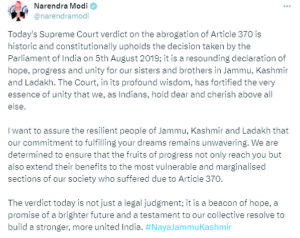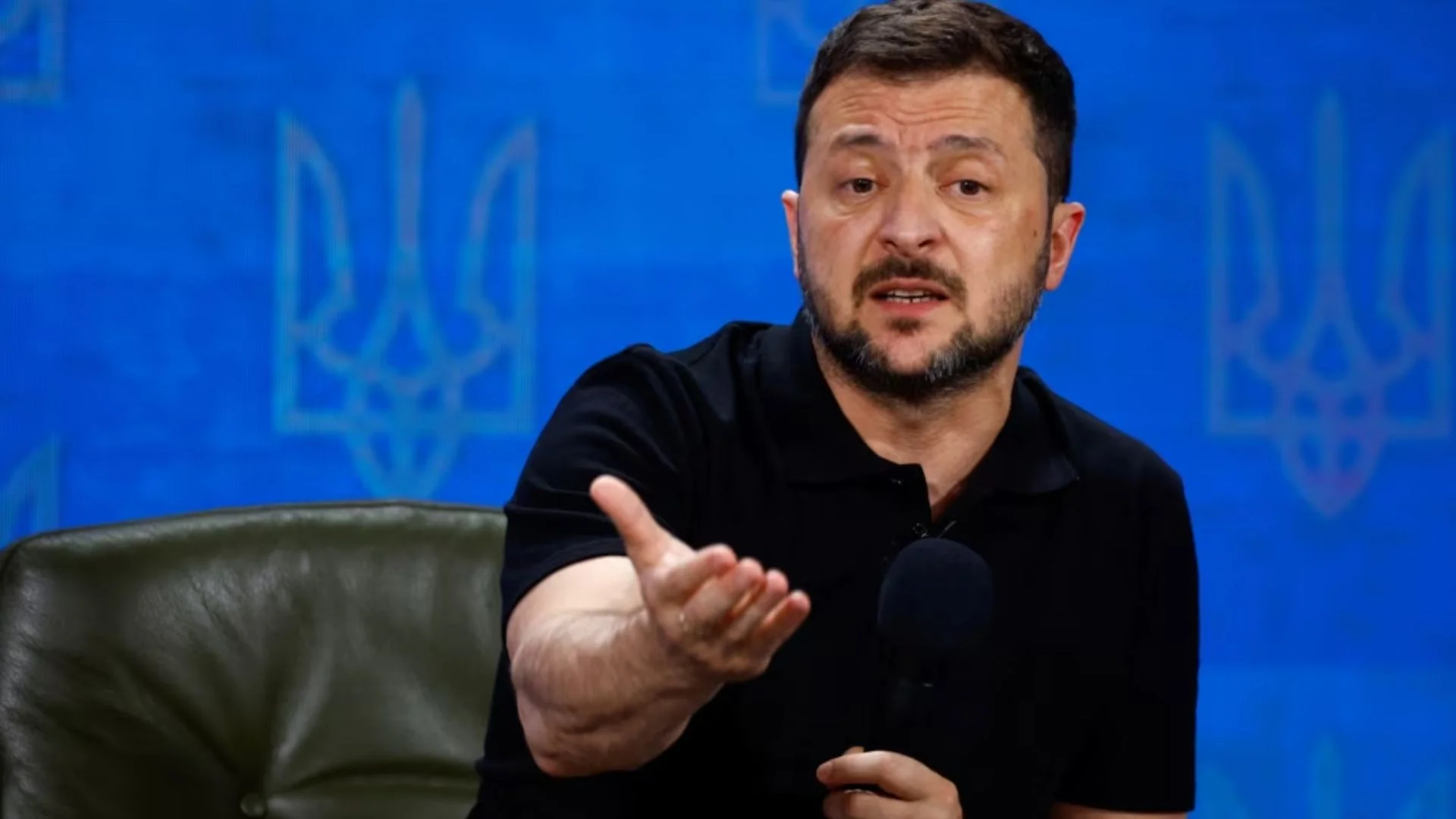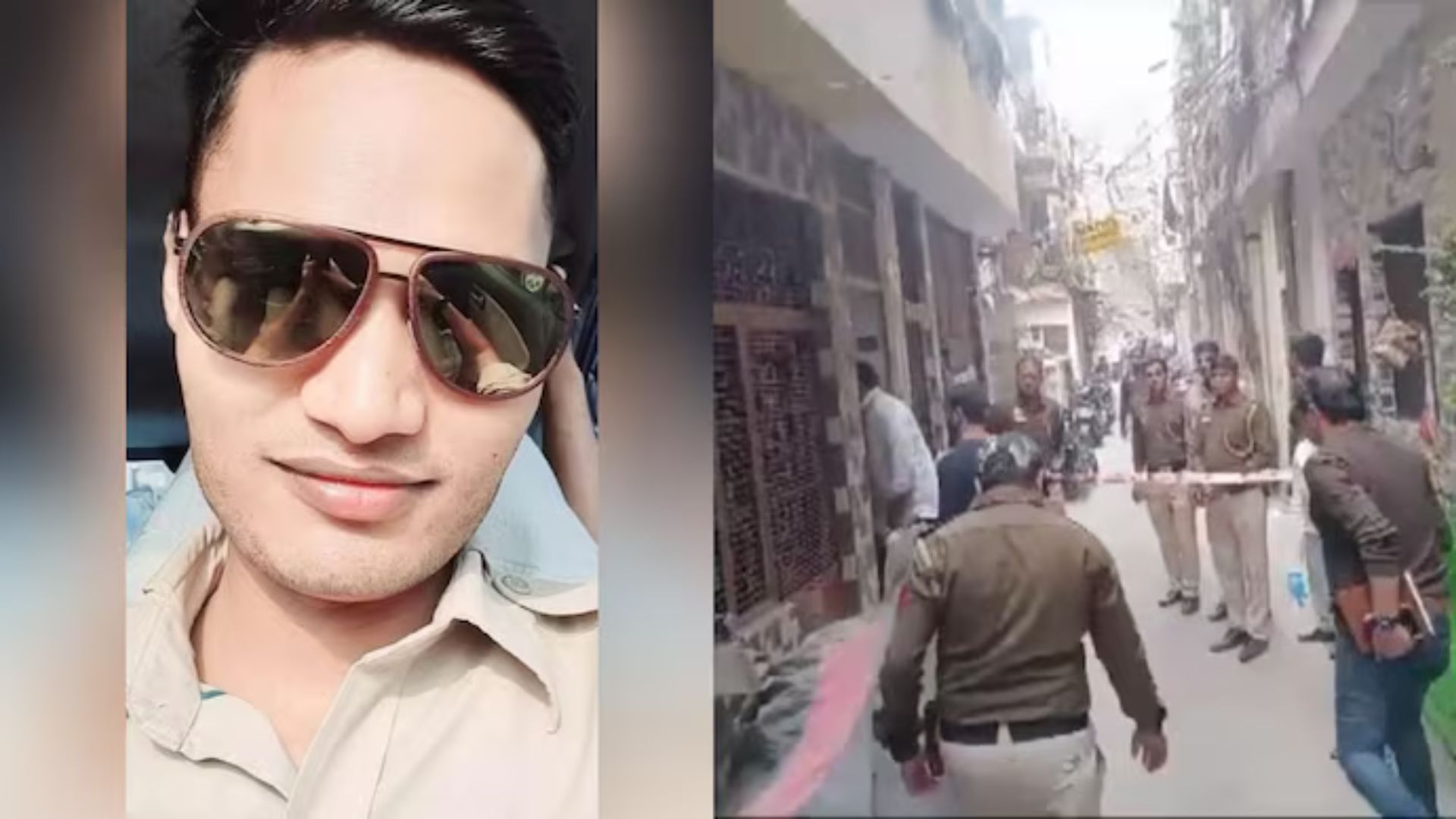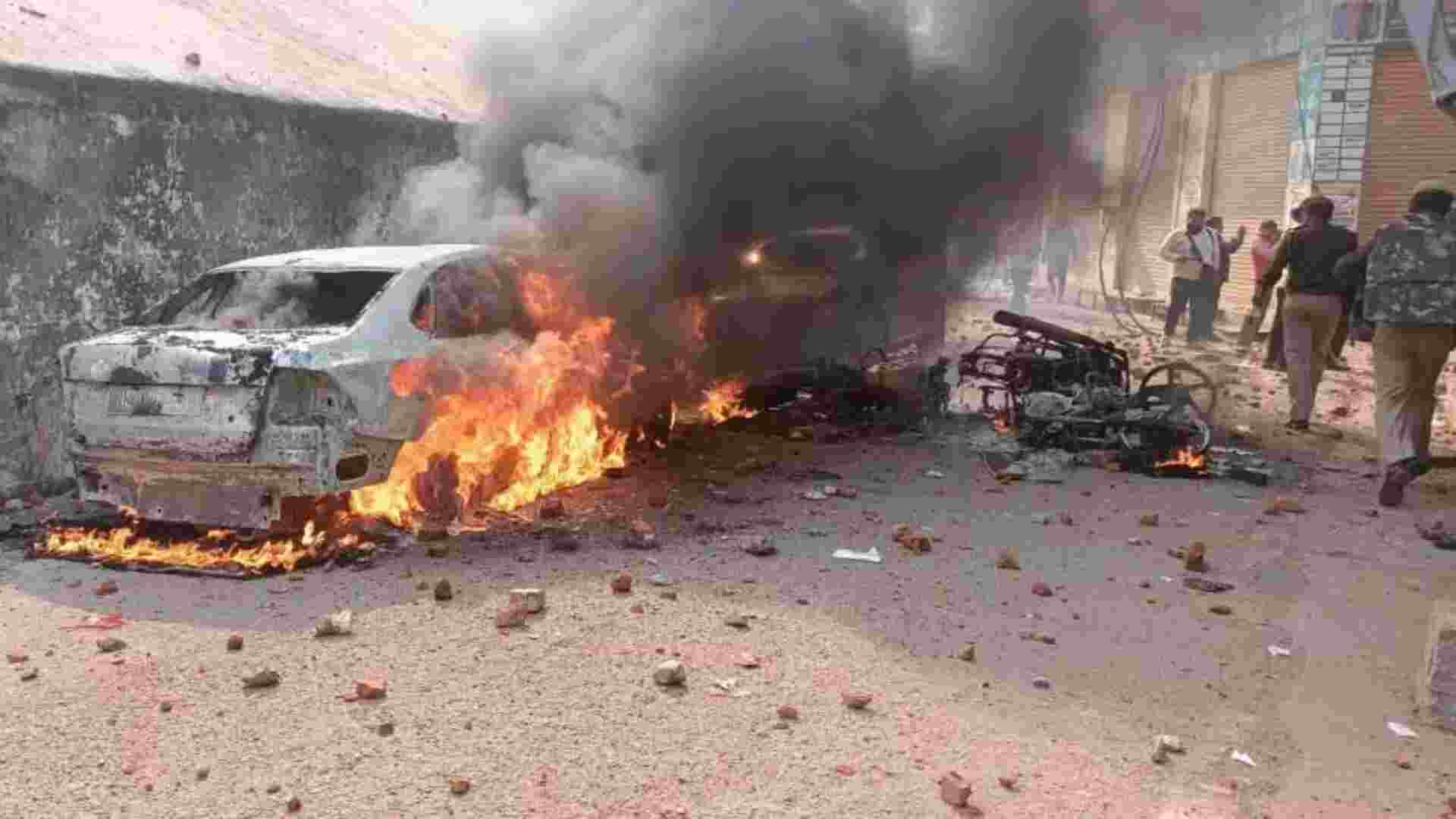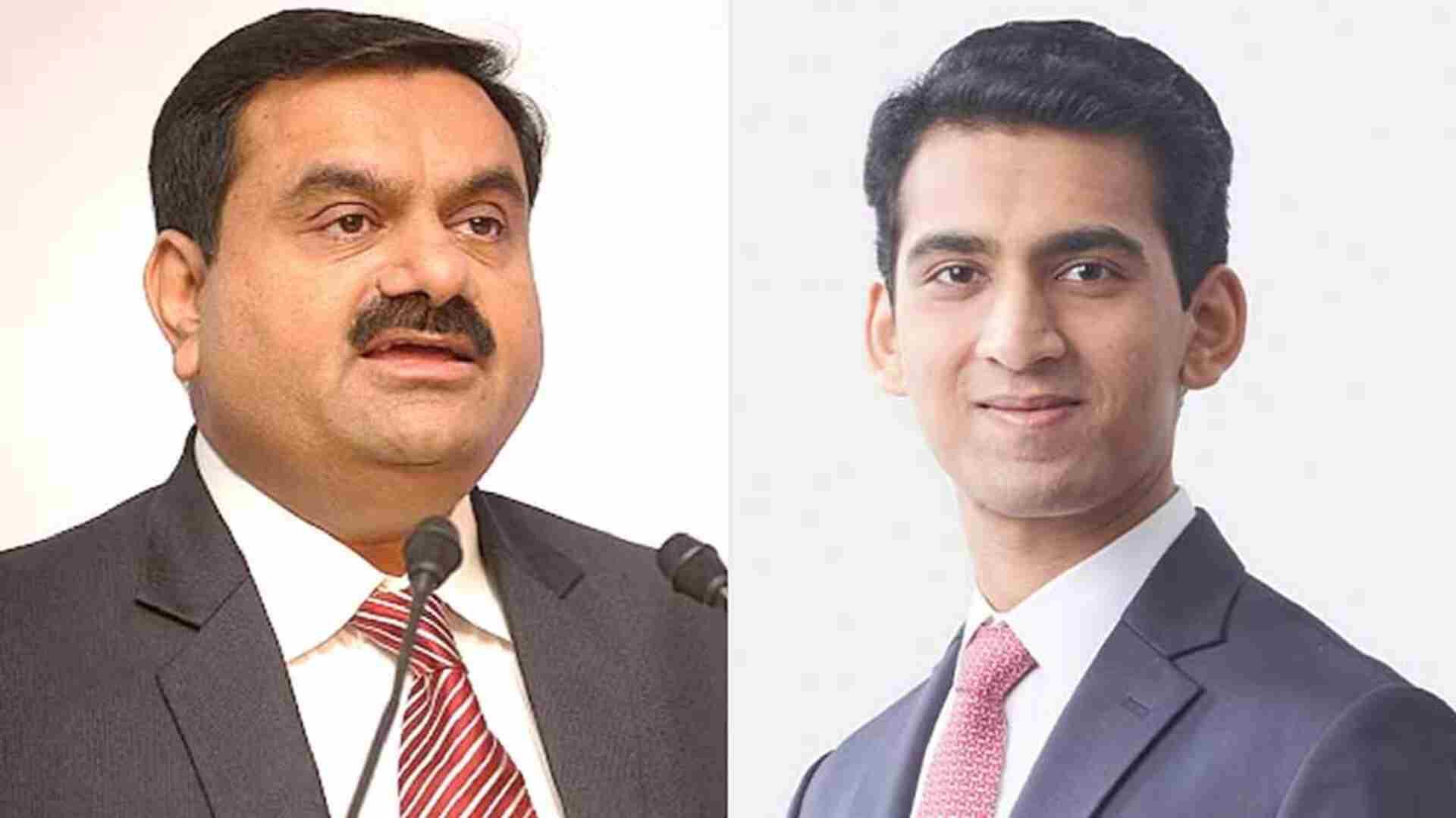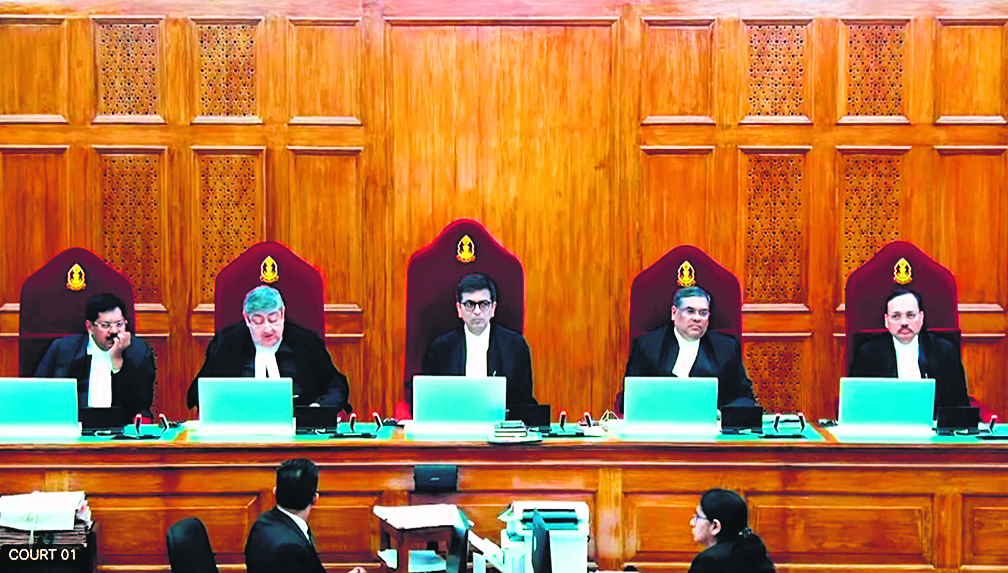
The Supreme Court on Monday affirmed that Article 370 of the Constitution was a temporary provision, and the President’s authority to revoke it remains intact. A constitutional bench of five judges, including CJI DY Chandrachud and Justices Sanjay Kishan Kaul, Sanjiv Khanna, BR Gavai, and Surya Kant, pronounced their verdict on a set of petitions contesting the abrogation of Article 370.
The apex court upheld the Modi government’s decision to revoke Article 370, which granted special status to Jammu and Kashmir, emphasising the need to conduct assembly elections in the region by September 30 of the following year.
CJI Chandrachud remarked, “Article 370 was an interim arrangement during wartime conditions in the state. The Constituent Assembly of J&K was never meant to be a permanent body.”
He further called it a unanimous verdict by a five-judge bench on petitions challenging Centre’s 2019 decisions to scrap special status for Jammu & Kashmir under Article 370.
In delivering the verdict, the Chief Justice of India highlighted that Jammu and Kashmir did not retain sovereign elements after its integration into India. “J&K became an integral part of India, evident in Articles 1 and 370 of the Constitution,” he noted, mentioning the three judgments delivered by the 5-judge bench on the matter.
Dismissing the petitioners’ contention that irreversible actions cannot be taken by the Centre during President’s rule, the Supreme Court clarified, “Not every decision made by the Centre on behalf of the state during presidential rule can be contested.”
The Supreme Court said that it recognised that Article 370 was a temporary provision. “The Maharaja’s proclamation said that the constitution of the state would end with its merger with India. The Supreme Court said that after reading all the documents, we have come to the conclusion that Article 370 is abrogated due to the war situation in the state.
The top court also noted that the contention of the petitioners that the Central government cannot take action with irreversible consequences in the state during President’s rule is not acceptable.
While delivering the judgement, the Supreme Court, presiding over the bench, said that “We have held that the State of Jammu and Kashmir did not retain any element of sovereignty upon its accession to the Union of India.
The CJI further said that on November 25, 1949, a proclamation was issued for the State of Jammu and Kashmir by “Yuvraj Karan Singh”. This Proclamation states that the Constitution of India shall not only supersede all other constitutional provisions in the State which were inconsistent with it, but shall also repeal them, the Constitution of India accomplishes everything which was to be achieved by the Agreement of Accession. Could. The CJI said that Yuvraj Karan Singh’s proclamation represents the complete and final surrender of sovereignty by Jammu and Kashmir to India through its sovereign ruler.
The Supreme Court said, “The proclamation issued by the President exercises the power under Section 3 of Article 370 and is the culmination of the process of integration. Thus, we do not find that the exercise of the President’s power under Section 3 of Article 370 was mala fide “We consider the President’s exercise of power to be legitimate.”
The Court also said that Article 370 was for the constitutional integration of Jammu and Kashmir with the Union and it was not for dissolution and the President can declare that Article 370 ceases to exist.
The Court said, “The consent of the State Government was not required to invoke all the provisions of the Constitution using Article 370(1) (d). Therefore, there was no mala fide in taking the consent of the Central Government by the President of India.”
The Supreme Court also directed the Election Commission to conduct Jammu and Kashmir Assembly elections by September 30, 2024. The Supreme Court said that in view of the Centre’s plea on restoration of statehood to Jammu and Kashmir, it directs that the statehood be restored as soon as possible. ,
Keep in mind that the apex court had reserved the decision on September 5 after hearing the arguments for 16 days.
